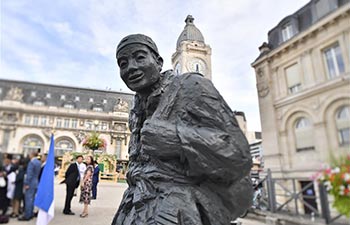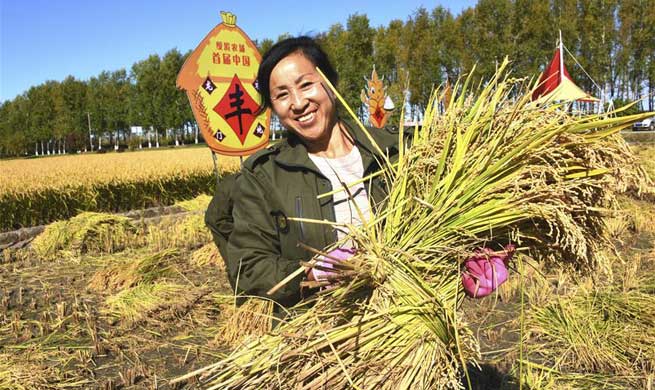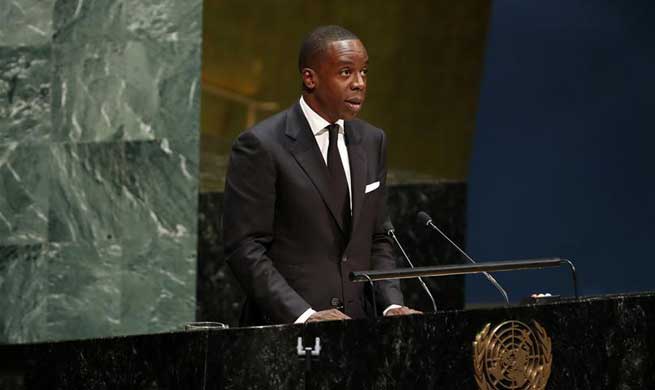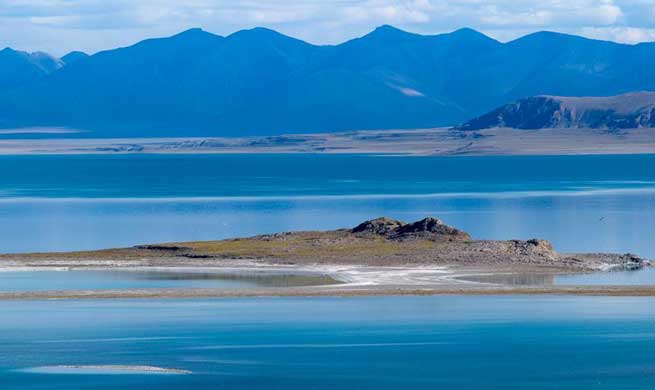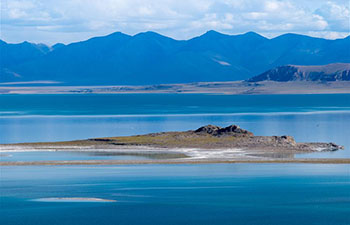ISTANBUL, Sept. 21 (Xinhua) -- While eliminating the threat of a refugee influx into Turkey, the deal with Russia to create a demilitarized zone in Syria's Idlib risks confronting Turkish troops with radical rebels as well as settling the jihadists nearer the Turkish border, analysts cautioned.
Turkey and the Turkish troops would become a target of the jihadist groups as they apparently need to intervene to disarm the rebels under the deal, Sinan Ulgen, a former Turkish diplomat, told Xinhua.
Turkish President Recep Tayyip Erdogan and his Russian counterpart Vladimir Putin concluded the deal on Monday for the establishment of a demilitarized zone of 15 to 20 km deep in Idlib along the contact line between the Syrian troops and the rebels.
"Turkey has assumed a critical responsibility," Ulgen said, noting it is Turkey's obligation to separate the terrorist groups from those so-called moderate ones and collect the heavy weapons from the rebels.
According to press reports, some al-Qaida-linked terror groups in Idlib said that they would not hand over their heavy weapons and that they would not leave their positions, in a gesture that means the rejection to the establishment of a demilitarized zone in Idlib province.
The Ankara-Moscow deal requires that all the rebel groups designated as terrorists leave the demilitarized zone by Oct. 15, while all the heavy weapons such as tanks, artillery and rocket launchers shall be withdrawn from the zone by Oct. 10.
Putin said at the summit in Russia's Sochi that he and Erdogan agreed that all the rebel groups would hand over their heavy weapons.
Russia expects Turkey, a supporter of moderate groups in Idlib, to persuade the rebels to act in line with the Sochi deal, which aims at preventing the rebels from posing a threat to Russian military positions in Syria and keeping Idlib as a de-escalation zone while settling the issue through diplomacy.
It would be no exaggeration to say the deal would turn the area right next to the Turkish border into a zone where terrorists would swarm, Cahit Armagan Dilek, a former staff officer in the Turkish military, told Xinhua.
In case the deal does not work, the rebels would attempt to flee to Turkey or areas under Turkey's control in northern Syria when faced with an all-out Syrian offensive, observed Dilek.
The demilitarized zone mainly covers the southern and eastern parts of the Idlib province, while Turkey and the areas under its control borders Idlib in the east and north.
Much of the Idlib province falls under the control of the al-Qaida-linked Tahrir al-Sham alliance, while Ankara-backed rebels control the rest of the territory.
The deal with Russia came following Turkish efforts to avert a looming Russian-backed Syrian army offensive to retake the province, as Ankara fears, among others, the attack could send millions of refugees to the Turkish border when it has already had 3.5 millions Syrians on its soil.
From Ankara's perspective, the biggest success of the deal is that the Syrian offensive and the security risk posed by a potential huge refugee influx have been suspended for now, said Ulgen, who currently chairs the Istanbul-based Centre for Economics and Foreign Policy Studies.
Idlib, the last remaining bastion for the rebels in the seven-year-old Syrian war, is home to around 50,000 armed rebels.
Dilek, who heads the Ankara-based 21st Century Turkey Institute, highly doubted that the deal would work, under which Turkish and Russian military police will jointly patrol the demilitarized zone.
Noting some radical rebels already said they would not respect the deal, Dilek warned that Ankara would find itself in a difficult position if some rebels fire a rocket on a Russian base or troops on patrol.
Based on a deal with Russia and Iran, Turkey's partners in the Astana process, the Turkish military has set up 12 observation posts in Idlib. Under the Sochi agreement, Turkey shall reinforce its forces at the observations posts and monitor the demilitarized zone by drones like Russia did.
Turkey seems happy to send reinforcements and obtain the right to fly drones over Idlib, remarked Dilek. "That implies that Turkey is planning to remain in Idlib and at the table in Syria whether the (Sochi) deal works or not," he explained.
While the Turkish government appears to be mainly focusing on Idlib for now, it has often been criticized at home for failing to take necessary steps against the Kurdish entity in northeastern Syria along Turkey's border.
The Kurdish militia, known as the People's Protection Units (YPG), has managed to control nearly 30 percent of the Syrian territory during the war thanks mainly to the U.S. support.
It has been too late for Turkey to intervene to prevent the emergence of a YPG entity in the eastern part of the Euphrates River, stated Dilek.
Given that Turkey is currently busy with Idlib, it can no longer be expected to deal with the U.S.-backed Kurdish militia at the same time, he argued.
Ankara has often accused Washington of trying to carve out a Kurdish state in Syria, calling it an existing threat to Turkey. Turkey is concerned that the emergence of an autonomous Kurdish zone on its southern border could set a precedent for its own nearly 20 million Kurds.
Arguing the United States has so far made considerable progress in its policy to make Turkey accept the YPG presence in Syria, Dilek said that "Turkey will in the end have to accept the entity there."







